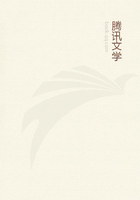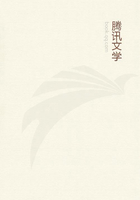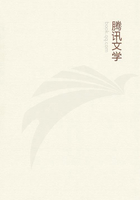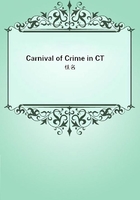"Changes in the heavens . . . portended changes on earth. The Biblical expression 'hosts of heaven' for the starry universe admirably reflects the conception held by the Babylonian astrologers. Moon, planets and stars constituted an army in constant activity, executing military manoeuvres which were the result of deliberation and which had in view a fixed purpose. It was the function of the priest-- the barqu, or 'inspector,' as the astrologer as well as the 'inspector' of the liver was called--to discover this purpose. In order to do so, a system of interpretation was evolved, less logical and less elaborate than the system of hepatoscopy, which was analyzed in the preceding chapter, but nevertheless meriting attention both as an example of the pathetic yearning of men to peer into the minds of the gods, and of the influence that Babylonian-Assyrian astrology exerted throughout the ancient world" (Jastrow).[17]
[16] Philostratus: Apollonius of Tyana, Bk. VIII, Chap. VII, Phillimore's transl., Oxford, 1912, II, 233. See, also, Justin:
Apologies, edited by Louis Pautigny, Paris, 1904, p. 39.
[17] M. Jastrow: Aspects of Religious Belief and Practice in Babylonia and Assyria, New York, 1911, p. 210.
With the rationalizing influence of the Persians the hold of astrology weakened, and according to Jastrow it was this, in combination with Hebrew and Greek modes of thought, that led the priests in the three centuries following the Persian occupation, to exchange their profession of diviners for that of astronomers; and this, he says, marks the beginning of the conflict between religion and science. At first an expression of primitive "science," astrology became a superstition, from which the human mind has not yet escaped. In contrast to divination, astrology does not seem to have made much impression on the Hebrews and definite references in the Bible are scanty. From Babylonia it passed to Greece (without, however, exerting any particular influence upon Greek medicine). Our own language is rich in words of astral significance derived from the Greek, e.g., disaster.
The introduction of astrology into Europe has a passing interest.
Apparently the Greeks had made important advances in astronomy before coming in contact with the Babylonians,--who, in all probability, received from the former a scientific conception of the universe. "In Babylonia and Assyria we have astrology first and astronomy afterwards, in Greece we have the sequence reversed--astronomy first and astrology afterwards"
(Jastrow).[18]
[18] M. Jastrow: Aspects of Religious Belief and Practice in Babylonia and Assyria, New York, 1911, p. 256.
It is surprising to learn that, previous to their contact with the Greeks, astrology as relating to the individual-- that is to say, the reading of the stars to determine the conditions under which the individual was born--had no place in the cult of the Babylonians and Assyrians. The individualistic spirit led the Greek to make his gods take note of every action in his life, and his preordained fate might be read in the stars.--"A connecting link between the individual and the movements in the heavens was found in an element which they shared in common. Both man and stars moved in obedience to forces from which there was no escape. An inexorable law controlling the planets corresponded to an equally inexorable fate ordained for every individual from his birth. Man was a part of nature and subject to its laws. The thought could therefore arise that, if the conditions in the heavens were studied under which a man was born, that man's future could be determined in accord with the beliefs associated with the position of the planets rising or visible at the time of birth or, according to other views, at the time of conception.
These views take us back directly to the system of astrology developed by Babylonian baru priests. The basis on which the modified Greek system rests is likewise the same that we have observed in Babylonia--a correspondence between heaven and earth, but with this important difference, that instead of the caprice of the gods we have the unalterable fate controlling the entire universe--the movements of the heavens and the life of the individual alike" (Jastrow).[19]
[19] Ibid., pp. 257-258.
From this time on until the Renaissance, like a shadow, astrology follows astronomy. Regarded as two aspects of the same subject, the one, natural astrology, the equivalent of astronomy, was concerned with the study of the heavens, the other, judicial astrology, was concerned with the casting of horoscopes, and reading in the stars the fate of the individual.
As I mentioned, Greek science in its palmy days seems to have been very free from the bad features of astrology. Gilbert Murray remarks that "astrology fell upon the Hellenistic mind as a new disease falls upon some remote island people." But in the Greek conquest of the Roman mind, astrology took a prominent role. It came to Rome as part of the great Hellenizing movement, and the strength of its growth may be gauged from the edicts issued against astrologers as early as the middle of the second century B.C. In his introduction to his recent edition of Book II of the Astronomicon of Manilius, Garrod traces the growth of the cult, which under the Empire had an extraordinary vogue. "Though these [heavenly] signs be far removed from us, yet does he [the god] so make their influences felt, that they give to nations their life and their fate and to each man his own character."[20]
Oracles were sought on all occasions, from the planting of a tree to the mating of a horse, and the doctrine of the stars influenced deeply all phases of popular thought and religion.

